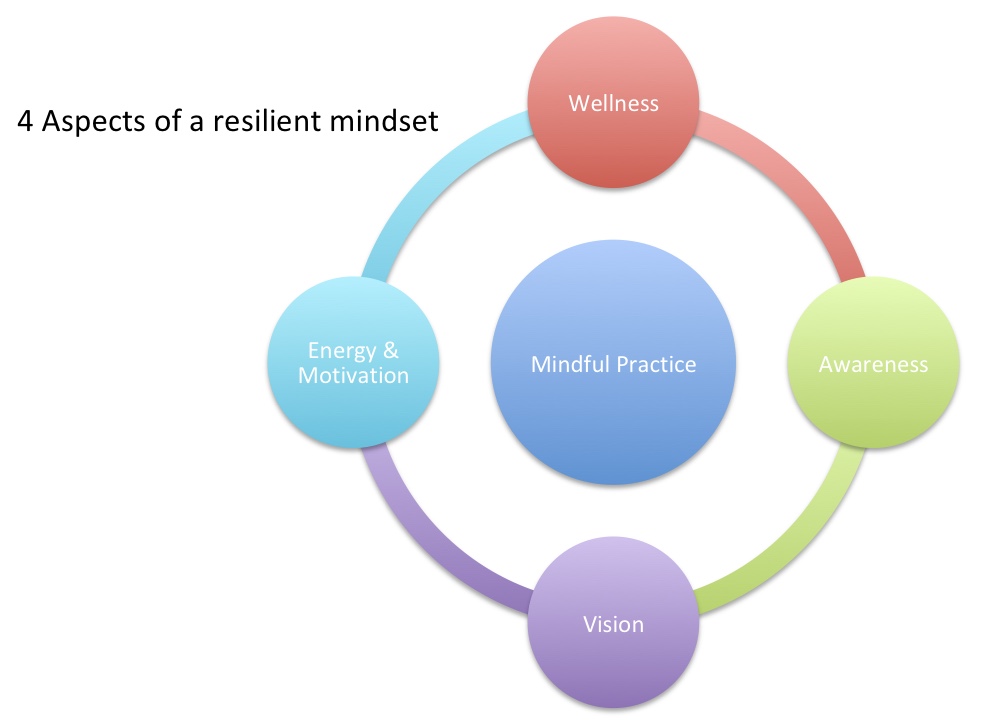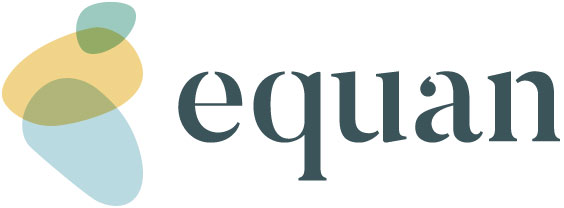Resilience is something that we are hearing more and more about, from resilient people, resilient business models and resilient organisations, everybody wants to be resilient in this fast paced ever-changing world we live in.
But what is resilience?
Often resilience is seen as being really tough and bouncing back easily from traumatic or difficult situations but this is not necessarily the true meaning of what a resilient mindset is. Resilience is the ability to navigate life, adapting to change, learning through adversity and understanding your feelings and emotional responses to situations. Resilience is an evolving way of being and takes personal understanding and awareness.
There are people who are naturally more resilient than others but the good news is resilience can be learned and improved. In my new resilience training and coaching model WAVE™ I have broken resilience down into 4 manageable parts; wellness, awareness, vision and energy & motivation.

Wellness
The first aspect of resilience is being and feeling well in all aspects of your life. In the real world it is not possible to be perfect in all of these areas of wellness all the time but if you understand where you are and have some strategies in place to manage you will feel better equipped for life. There are hundreds of wellness models available but here’s my definition.
Emotional
Do I feel positive most of the time
Do I deal with stress well
How do I deal with challenges in my life
Physical
Do I eat well
Do I sleep well
Do I exercise
Occupational
Am I happy in my work
Do I feel appreciated at work
Am I fulfilled with the work I do
Friends & family
Do I have positive relationships with my family and/or friends
Do I get to see my family and/or friends regularly
Do I have support form family and/or friends when I need it
Social
Do I have regular social activities
Am I involved in my community
Am I accepting of others (race, sexuality, religion, gender)
Spiritual and/ or environmental
Do I have a belief system
Do I have a sense of purpose
Do I feel connected to the world around me
Intellectual and creative
Do I feel mentally stimulated
Do I have time to be creative or do activities not related to my work
Financial
Do I have enough money to look after myself and my dependents
Do I make good decisions with my finances
Do I take responsibility for my financial situation
How can I improve my overall wellness?
Completing one of the many available wellness questionnaires online can give you an understating of where you are with your personal wellness. Once you have completed an assessment make a plan to tackle some of the problem areas. Remember to start with small achievable goals and don’t try to make too many big changes on at once. This is a great starting point on your resilience journey.
Awareness
Awareness is about understanding yourself and how you are in the world. How do you behave, how do you relate to people, what makes you feel upset or angry and how do you deal with this?
Improving your self-awareness means that you understand your needs better, and have an easier time communicating what you need and want. Being self-aware can have many benefits including
- Ability to set attainable goals
- Being more optimistic
- Honest with yourself
- Feeling happier and more content
- Less guilt and remorse
- Easier to make decisions
- Less likely to see something as a failure rather a opportunity to learn
How can you become more self-aware?
Journaling is a great way to start your self-awareness improvement.
Recording difficult events and how you dealt with them gives you the opportunity to reflect and understand why you may have reacted in a particular way. Once you start journaling you will notice that you become more aware of your emotions and reactions to situations in the moment.
If there are certain areas that you feel you have a block and are unable to move through yourself, get some help from a therapist or a coach. Working with a professional even on a short-term basis can have a huge impact and can help you achieve goals that you may have thought impossible.
Vision
Your vision is not just about your career but your life as a whole, your family, friends, where you live and what you do with your time. Understanding what is important to you helps you manage and put into perspective any stressors in your life. Working for a company or organisation that is aligned with your personal vision makes for a happier work life and a more meaningful job.
The vision component may seem simple but it’s something that many people do not do. When is the last time you asked yourself what makes me really happy or what do I want to be remembered for? Take some time out to truly and honestly reflect on what is important, what do you want to have and achieve in your life. This can change and evolve with time especially as you get to know yourself better. When creating your personal vision make sure to look at all aspects of your life so you get a holistic picture.
Energy & motivation
Energy and motivation is about managing your stress levels and understanding your personal motivators.
Stress is the bodies respond to a perceived threat or danger, this automatic response served humans well back in the Stone Age when we were faced with life threatening situations on a daily basis. Roll on to present day, and we are still having the same bodily response to situations that are non-life threatening and much more frequent. Technology, social media and a constant connection to the workplace are among the biggest stressors in modern day life.
Taking some technology free quiet time for yourself everyday, exercising, getting enough sleep, connecting with friends and family, breathing exercises, mindfulness and getting out in the fresh air are all great ways to start reducing your stress.
The positive side of stress is motivation. Wanting to do a good job, get a promotion, loose weight or run a marathon are all driven by the same stress responses. Healthy amounts of stress keep us motivated, you just need to give yourself time to rest and recuperate to stay in the positive stress or eustress category and not move into chronic and unmanageable stress.
Motivation is closely linked to your vision, having a clear understanding of what you want to achieve helps to keep you on the right track and also helps you move through difficult situations that in the long term will not have any impact on your vision and goals.
Mindful Practice
A daily mindful practice is an essential part of improving your resilience. Mindfulness will help each one of the 4 aspects of a resilient mindset, wellness, awareness, vision and energy & motivation. A mindful practice can include silent meditation, guided meditation, progressive relaxation and being mindful when doing everyday tasks.
To start your mindfulness practice I suggest you look online for some guided mindful practices, there are so many to choose from. Another easy way to start your mindful practice is to decide on one everyday activity to complete mindfully. A good one is brushing your teeth, so instead of having busy mind with hundreds of thoughts rushing through it decided to be mindful. Engage all your senses in this one activity and acknowledge and release any thoughts that come to your mind. This may be tricky to start with but it will get easier I promise.
Resilience is something that every person should be taught, luckily many schools are now teaching resilience to children from a young age, as it is acknowledged as being such an important skill. Workplaces are also beginning to understand the importance of resilience but we have a long way to go before this skill is widely taught and embedded in workplace cultures.

